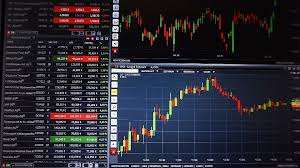
Forex trading is a multi-trillion-dollar market that offers immense opportunities for traders willing to put in the time and effort to learn and adapt. To thrive in this volatile environment, it’s essential to develop a solid forex trading practice. In this article, we will explore various strategies and techniques that can help you improve your trading skills and increase your chances of success in the forex market. Additionally, we will reference resources such as forex trading practice Qatar Brokers, which can assist traders with valuable insights and tools.
Understanding the Forex Market
The forex market, or foreign exchange market, is a global decentralized or over-the-counter (OTC) marketplace where currencies are traded. Unlike stock markets, which operate on exchanges, forex transactions occur directly between parties, usually through electronic trading platforms. The main participants in the forex market are banks, financial institutions, corporations, and individual traders. Understanding how the market operates is crucial for developing your forex trading practice.
Setting Up a Trading Plan
A well-defined trading plan is vital for successful forex trading. Your trading plan should include the following components:
- Trading Goals: Determine what you want to achieve through trading. Are you looking for short-term gains or long-term revenue?
- Market Analysis: Specify whether you will use technical analysis, fundamental analysis, or a combination of both.
- Risk Management: Establish your risk tolerance and define how much capital you are willing to risk on each trade.
- Entry and Exit Strategies: Outline your criteria for entering and exiting trades.

Emphasizing Risk Management
Risk management is a cornerstone of successful forex trading. It’s essential to protect your trading capital from significant losses which can hinder your trading progress. Here are some risk management techniques:
- Use Stop-Loss Orders: Placing stop-loss orders can help you limit potential losses by automatically closing your position at a predetermined price.
- Position Sizing: Allocate an appropriate portion of your trading capital to each trade based on your risk tolerance.
- Diversification: Avoid putting all your capital into one trade or currency pair. Diversifying your portfolio can help mitigate risk.

Choosing the Right Trading Style
Your trading style should align with your personality, time availability, and goals. Common trading styles include:
- Day Trading: Involves making multiple trades within a single day, closing positions before the market closes.
- Swing Trading: Positions are held for several days or weeks to capture longer-term price moves.
- Scalping: Focuses on making small profits from numerous trades throughout the day.
Selecting the right trading style enhances your ability to make decisions and stay disciplined in your approach.
Staying Informed on Economic News
Economic news and geopolitical events greatly impact currency values. To develop a successful forex trading practice, it’s essential to stay updated on economic indicators, such as interest rates, inflation rates, and employment figures. Major news events can lead to volatility in the forex market and create opportunities for traders.
Utilizing Trading Tools and Platforms
Leverage technology to improve your trading practices. Many brokers offer advanced trading platforms that include tools such as:
- Technical Analysis Tools: Indicators, charting software, and automated alerts help you analyze market trends and make informed decisions.
- Trading Simulators: Practice trading strategies without risking real money by using demo accounts and simulation software.
- News Feeds: Stay updated with real-time economic news that may influence your trading positions.
Continuously Educating Yourself
The forex market is continually evolving, making it crucial for traders to stay educated and informed. Resources for learning include:
- Online Courses: Enroll in forex trading courses that offer comprehensive insight into trading strategies and market mechanics.
- Webinars and Seminars: Participate in live discussions hosted by professional traders to gain new perspectives and tips.
- Books and Articles: Read books, articles, and blogs dedicated to forex trading to expand your knowledge base.
Developing Emotional Discipline
Emotional discipline is vital for successful trading. Many traders experience fear and greed, leading to impulsive decisions. To cultivate emotional discipline, consider the following strategies:
- Stick to Your Trading Plan: Resist the urge to deviate from your established trading plan.
- Practice Mindfulness: Take deep breaths and maintain a calm mindset during trading sessions.
- Learn from Mistakes: Analyze past trades to understand what went wrong and how to improve.
Conclusion
Practicing effective forex trading requires a well-rounded approach encompassing knowledge, strategy, risk management, and continuous learning. By implementing the tips and strategies outlined in this article, you can develop a strong forex trading practice that improves your trading performance and increases your chances of success in the forex market. Additionally, consider utilizing resources such as Qatar Brokers to enhance your trading journey. Remember, success in forex trading is not achieved overnight; it requires dedication, patience, and the willingness to learn and adapt.